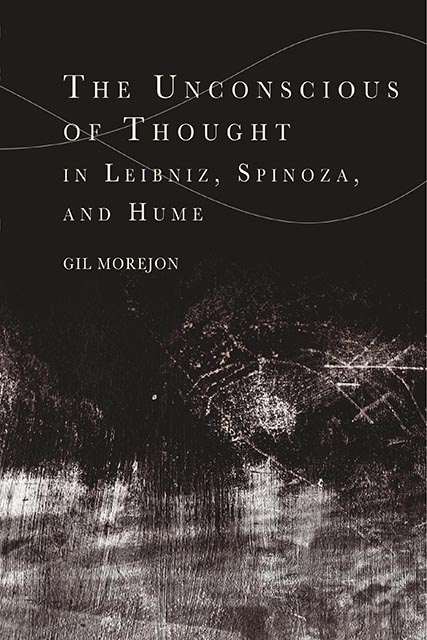Book contents
- Frontmatter
- Contents
- Acknowledgements
- Reference Conventions
- Introduction: Involuntarism and Philosophy
- 1 The Obscure Dust of the World: The Unconscious of Perception in Leibniz
- 2 Inevitable and Persistent Inadequacies: The Unconscious of Ideas in Spinoza
- 3 Deteriora Sequor: The Unconscious of Desire in Spinoza
- 4 The Gravity of Ideas: The Unconscious of Habit in Hume
- Conclusion: Obscurity and Involvement
- Bibliography
- Table of References to Leibniz, Spinoza, and Hume
- Index of Names
Introduction: Involuntarism and Philosophy
Published online by Cambridge University Press: 14 July 2023
- Frontmatter
- Contents
- Acknowledgements
- Reference Conventions
- Introduction: Involuntarism and Philosophy
- 1 The Obscure Dust of the World: The Unconscious of Perception in Leibniz
- 2 Inevitable and Persistent Inadequacies: The Unconscious of Ideas in Spinoza
- 3 Deteriora Sequor: The Unconscious of Desire in Spinoza
- 4 The Gravity of Ideas: The Unconscious of Habit in Hume
- Conclusion: Obscurity and Involvement
- Bibliography
- Table of References to Leibniz, Spinoza, and Hume
- Index of Names
Summary
This book seeks to retrieve and defend a simple idea, namely that thought and consciousness are not coextensive. It is a project of retrieval, since the idea that thought and consciousness are identical is a relatively recent invention, a piece of modern doxa or ideology. But I want to put this nonidentity claim in a positive form: there is an unconscious of thought. I will defend this positive claim by exploring the unconscious of thought as it is articulated in the metaphysics of ideas of early modernity, in particular in the work of G.W.F. Leibniz, Benedict de Spinoza, and David Hume. These thinkers, I will show, were highly sensitive to profound dimensions of unconscious thought, a domain that is not just unconscious accidentally, in the sense that there are ideas that may happen not to be conscious, but is instead unconscious structurally, essentially, or necessarily, in the sense that there are elements of thought that are constitutively incapable of being directly consciously apprehended by individual subjects in reflection. Moreover, these unconscious elements constitute conditions for the possibility of consciousness: without them, there could not even be consciousness at all. To the extent that philosophical modernity has tended to overemphasise or inflate the importance of consciousness at the expense of this unconscious of thought, I hold that it is extrinsically valuable, as a matter of situated historical importance, to actively work toward rectifying this overemphasis in accounts of the nature of the mind; as should become clear, however, I also think that giving the unconscious of thought its due is also intrinsically valuable, as a matter of philosophical importance, insofar as doing so brings substantial conceptual and explanatory resources to light.
It is a project of retrieval, then, but also a project of invention or rereading, since the positive terms in which I am putting this claim were not used by, and indeed were not available as such to, the thinkers in question. None of them said explicitly that there is an unconscious of thought. My task is to demonstrate that they nevertheless held this position.
- Type
- Chapter
- Information
- Publisher: Edinburgh University PressPrint publication year: 2022



